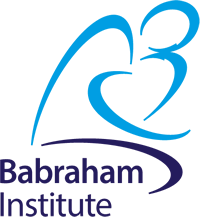Adaptation to the nutritional environment is an ancient mechanism required for the survival of life on both the cellular and organismal level. The function of adipose tissue in sensing and responding appropriately to dietary nutrients is critical to the maintenance of health and metabolic homeostasis. Diet-derived metabolites can act as powerful signals to adjust cellular behaviour. Importantly, the abundance of specific metabolites within the nucleus can directly affect epigenetic regulation via chromatin modifications. However, a mechanistic understanding of how specific dietary nutrients exert biological effects, especially in the nucleus, is lacking. Insights into metabolic regulation in the nucleus will uncover new strategies for targeted dietary and metabolic interventions to improve adipose tissue function in aging and metabolic syndrome (obesity and type 2 diabetes).
Compartmentalization of metabolites within cells means that their function is highly dependent upon their sub-cellular location. In our recent work we developed cutting edge techniques for metabolomic analysis of sub-cellular compartments, which revealed distinct regulation of metabolism within the nucleus. Importantly, this cannot be inferred from typical methods that use whole cell analysis. One particularly exciting finding was a significant nuclear-specific response to branched chain amino acids (BCAAs). BCAAs are strongly implicated in the development of metabolic disease. They are modifiable by diet and their breakdown is a prominent metabolic feature of adipocytes that is disrupted in insulin resistance. Despite this, a mechanistic relationship between BCAA metabolism and adipose function is unclear. This PhD project will investigate the hypothesis that BCAA-derived nuclear metabolites in adipose tissue contribute to insulin resistance via histone modifications.
This project is an opportunity to gain novel insights into the metabolic-epigenetic interface with combined training in cell biology and metabolomics. A key technique will be the application of liquid chromatography-high-resolution mass spectrometry (LC-HRMS) for stable isotope tracing and quantitation of metabolites using methods that are well established in the lab. The candidate will be trained on and have access to a Thermo IQ-X instrument and will be encouraged to take full advantage of the capabilities of this instrument. Cell biology techniques including gene expression analysis, gene editing, sub-cellular fractionation and protein biochemistry will be applied to mammalian tissue culture models with the opportunity to extend findings into mouse models. Excellent core facilities at the Babraham Institute will provide support for proteomics and imaging.
If you would like more information, or have any questions not answered on our website or the University of Cambridge Graduate Application Portal, please contact us on [Email Address Removed].
How to apply
All applications for PhD Studentships at the Babraham Institute need to be made using the University of Cambridge Graduate Application Portal regardless of funding source.
Please see the “Applying for a PhD” pages on our website for further details of the application process.
(For certain projects it is essential that you contact the Group Leader proposing the project BEFORE submitting your application via the University of Cambridge Graduate Application Portal to discuss possible funding options. Please see individual project descriptions for details.)
We hope to be able to invite short-listed applicants to attend our Institute Graduate Open Day on Wednesday, 19th January 2022 for a series of interviews. This will give applicants an opportunity to meet Group Leaders and their research groups, as well as receiving a tour of our research facilities. Reasonable travel expenses will be paid to those invited.
Students will not be able to take up an award unless they meet all University eligibility criteria and are successful in securing admission to the University. In addition, they will not be able to apply for a visa (if needed) until they hold an unconditional offer from the University.
The deadline for submission of applications via the Graduate Application Portal is Thursday, 2nd December 2021. Incomplete applications will not be considered.
If you would like more information, or have any questions not answered on our website or the University of Cambridge Graduate Application Portal, please contact us on [Email Address Removed].

 Continue with Facebook
Continue with Facebook



